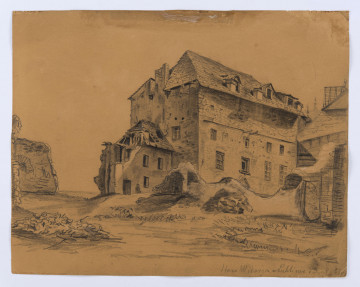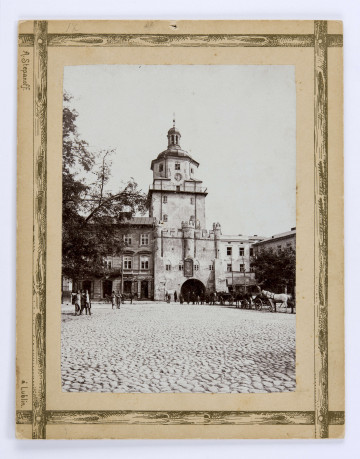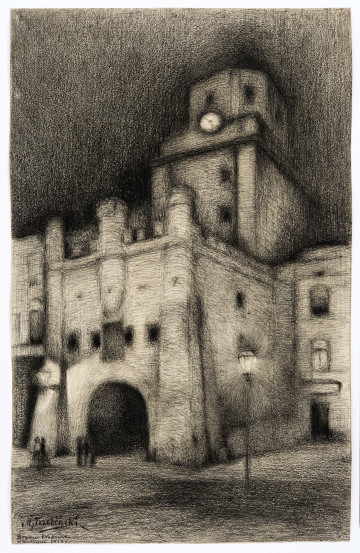
House of resident priests (Stara Wikaria) in Lublin
1853
National Museum in Lublin
Part of the collection: Lubliniana. Painting views of Lublin and the Lublin Region
The architecture of Lublin has often inspired artists to immortalise it in the form of drawings, oil paintings or other painting techniques. In this way, documentation of changes in the urban tissue has been preserved. Such works are a valuable testimony to the times in which they were created. Important urban buildings were portrayed, but also backstreets presented in a variety of ways.
Among the artists creating Lublin's iconography, such as Aleksander Gierymski, Leon Wyczółkowski, Ferdynand Ruszczyc, Wojciech Gerson, the author of portraits, landscapes and historical paintings, stands out. In the years 1849-1853, together with a group of graduates of the Warsaw School of Fine Arts, he went on a walking tour of the country, during which he documented images of towns and villages, including the Lublin area.
The card contains three sketches of the Old Town in Lublin: Rybna Gate, erroneously signed as Grodzka Gate, Kraków Gate and the ruins of St Michael's Church, whose present remains are even smaller. The Church of St Michael the Archangel dates to the Middle Ages. Originally wooden, it gained a brick form in the middle of the 13th century. After the city fires in 1447, 1459 and 1575, the church was destroyed. The familiar image of the church with its characteristic high tower is the result of reconstruction after the fire of 1459. The church was finally demolished in the middle of the 19th century.
A significant development of the city occurred at the turn of the 14th and 15th centuries. Lublin was situated on the royal route from Kraków to Vilnius. In the middle of the 14th century, Lublin was surrounded by city walls and two gates: the Kraków Gate, which led to the Kraków Road, and the Grodzka Gate, which enabled communication with the castle, and often became an inspiration for artists.
Klara Sadkowska
Author / creator
Dimensions
cały obiekt: height: 28,8 cm, width: 22,8 cm
Object type
drawing
Technique
drawing
Material
ribber paper, pencil
Creation time / dating
Creation / finding place
Owner
The National Museum in Lublin
Identification number
Location / status

1853
National Museum in Lublin

1880 — 1900
National Museum in Lublin

1910
National Museum in Lublin
DISCOVER this TOPIC
Museum of King Jan III's Palace at Wilanów
DISCOVER this PATH
Educational path